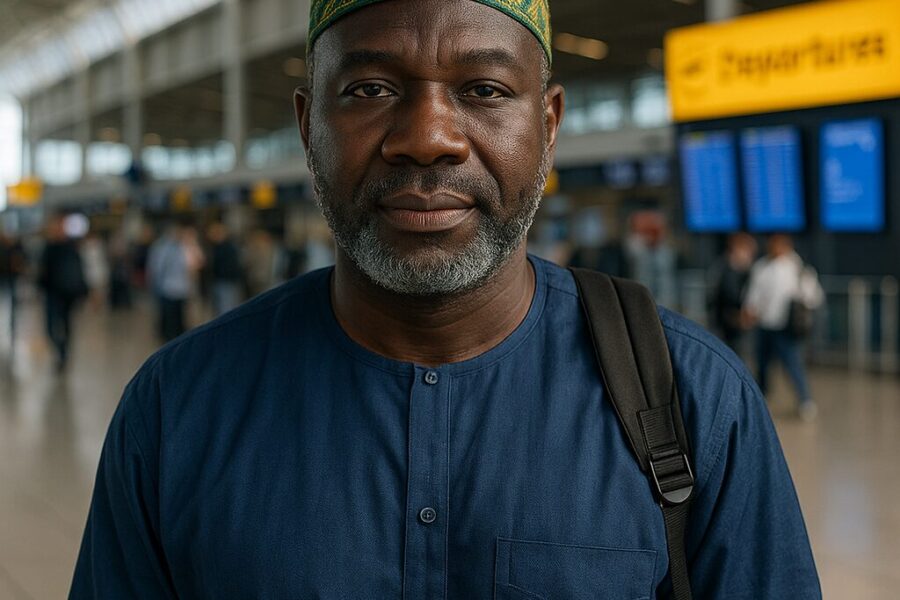Nigeria’s Youth Exodus: Understanding the Growing ‘Japa’ Movement
In a striking reflection of Nigeria’s changing social landscape, young professionals are increasingly joining the “Japa” movement—a mass exodus seeking opportunities abroad. This contemporary migration wave, while building on decades of Nigerian diaspora history, has taken on unprecedented urgency among the country’s youth.
Twenty-four-year-old electrical engineer Olotu Olanrewaju exemplifies this generation’s dilemma. Despite his deep appreciation for Nigeria’s rich cultural heritage—its cuisine, music, and community bonds—he finds himself preparing to leave his homeland for better professional prospects.
“I’m looking for greener pastures and better opportunities, rather than getting stuck here in Nigeria,” Olanrewaju told the BBC’s What in the World podcast, expressing his belief that his qualifications would receive greater recognition overseas.
The Push Factors Recent data underscores the scale of this exodus. According to a 2022 African Polling Institute survey, 69% of Nigerians aged 18-35 would emigrate given the chance—a dramatic increase from 39% in 2019. Daily challenges, including unreliable power supply, security issues, corruption, and inadequate governance, drive many young Nigerians to seek alternatives abroad.
The social media landscape buzzes with #Japa stories, featuring both nostalgic reflections from those who’ve left and success stories encouraging others to follow. However, the declining value of the naira and rising living costs make relocation increasingly challenging for many aspirants.
Professional Pathways For educated professionals, legal migration routes remain more accessible. Countries like the UK, Canada, Germany, and the US actively seek skilled immigrants. The UK alone hosts over 270,000 Nigerians, with work visa issuances quadrupling since 2019. Canada has seen its Nigerian resident population triple since 2015.
The healthcare sector particularly illustrates this trend’s impact. The Nigerian Medical Association reports that at least 50 doctors leave weekly, prompting government interventions like mandatory service periods for medical graduates and a two-year domestic work requirement for nurses.
Personal Journeys Individual stories highlight the complexity of these decisions. Daniel, 27, Olanrewaju’s brother, now works as a photographer and social worker in Aberdeen, Scotland. Oluwatobi Abodunrin, 29, relocated to London, driven by career aspirations. “Nigeria is filled with passionate, active youths who want more from their careers,” she explains. “We are highly talented, we want to be recognised, we want our voice to be heard and we want to be respected.”
Not all choose to leave. Dr. Vongdip Nankpah at the University of Abuja teaching hospital represents those committed to improving Nigeria from within. “If I’m going to maximise my medical practice, I’d rather remain in Nigeria to see if we can better the country and the region,” he maintains.
The Future Perspective For young Nigerians like Elizabeth Ademuyi Anuoluwapo, a zoology student, the decision to leave involves complex emotional and financial calculations. While the promise of stability beckons, the cost of leaving behind family, friends, and cultural connections weighs heavily.
As Olanrewaju prepares for his potential move to Germany or Spain, taking German language classes to improve his prospects, he views his journey as representative of many young Nigerians’ aspirations. The Japa movement continues to reshape Nigeria’s demographic landscape, highlighting both the country’s challenges and its youth’s determination to secure better futures.
Credit: This article is based on reporting by Hannah Gelbart and the BBC What in the World team, with additional contributions from Makuochi Okafor, Faith Oshoko, Emily Horler, and Alex Rhodes.







Leave a Comment